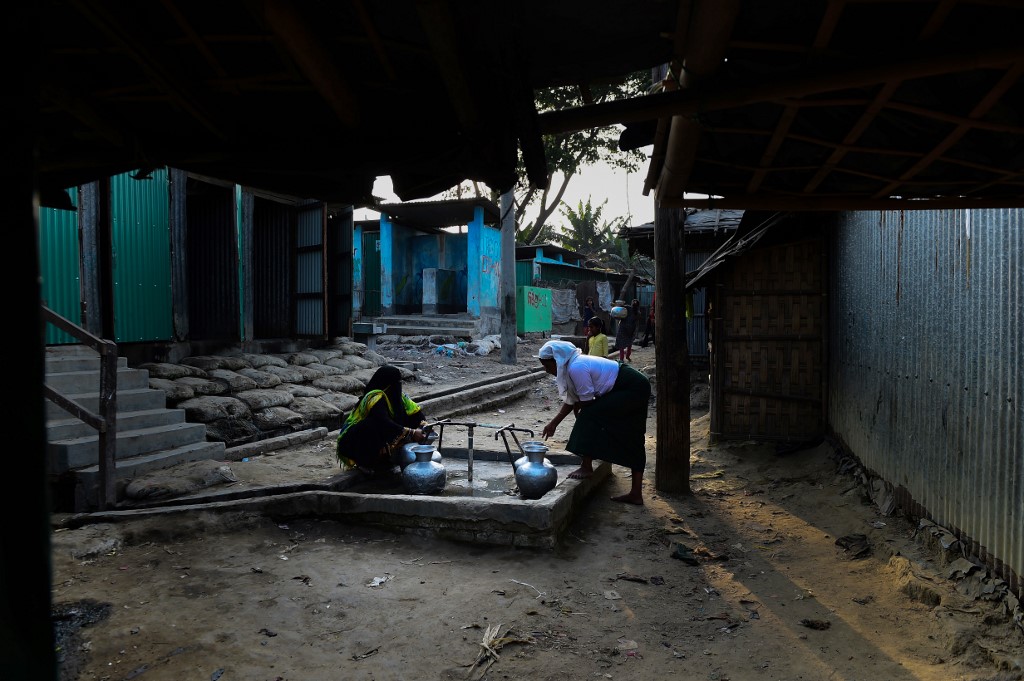
The Bangladesh military said Thursday it has ordered an investigation after a Rohingya family in a refugee camp accused army troops of raping a 12-year-old girl.
The inquiry comes as around a million Rohingya in vast camps in Bangladesh face increasing hostility two years after fleeing a military offensive in Myanmar.
Mohammad Osman, an elder brother of the alleged victim, said three soldiers entered their shanty at the Nayapara Rohingya camp on Sunday evening and sexually assaulted his sister.
"She was raped as one of them tightly held her mouth," he told AFP by phone, referring to the border district where the refugee camps are located.
A spokesman of the Bangladesh Armed Forces, Lieutenant Colonel Abdullah ibn Zaid, said they were investigating.
"We have formed a probe committee to investigate the incident and find out the facts. If (they are) found guilty, exemplary punishment will be given," ibn Zaid told AFP.
Doctor Shaheen Abdur Rahman said the girl was examined at the central hospital in Cox's Bazar but he refused to comment on the findings due to court restrictions.
A spokesman of the United Nations High Commissioner for Refugees said they were also investigating the incident.
"We are aware of the reports. In such cases, individuals are entitled to medical, physical and psychological support, as well as access to due process," UNHCR spokesman Joseph Tripura said in a statement to AFP.
Tensions
Tensions have risen in recent weeks with an increasingly frustrated Bangladeshi government enacting several measures making life harder for the refugees.
These include blocking mobile internet, confiscating SIM cards and mobile phones and filing hundreds of cases for illegally obtaining citizenship cards.
UN experts have expressed "serious concerns" about the restrictions.
Last week Bangladesh's home minister said that barbed-wire fencing, guard towers and cameras would be erected around the Rohingya camps, sparking criticism from rights groups.
Checkpoints set up on the main highways leading to the camps have stopped Rohingya and sent them back to the settlements when they try to travel to other parts of Bangladesh.
Hundreds of Rohingya found elsewhere in the South Asian nation have also been detained and returned to the camps.
Authorities say the internet ban was sparked by security fears after the Rohingya were blamed for the murder of a local politician and drug smuggling.
More than a dozen Rohingya—most accused of involvement in the murder of the politician—have been shot dead by security forces in recent weeks.
Officials also said on Thursday that 45 Rohingya have been charged with infiltration after they were detained illegally working in a ship-breaking yard.
Rights activists said this could be the first time Rohingya have been charged with infiltration—an offence that carries five years in jail.

